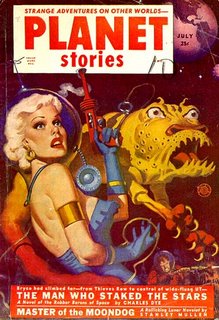Hello Jack - I had a great tutorial on Wednesday, I read them Celan's 'Corona' and we spent about 30 mins discussing your own poem, coming up with ideas, me talking a little about dialectics and poetry referencing poetry.
Afterwards the students requested I ask you to provide your own reading of your poem, and i thought this would be a good idea, so, if you get time before next week could you send me a few lines on the poem? The main query was: who is the 'she' saying 'it's time the asphalt bled'? - '5-fingered sky' brought up some interesting comments: fingers of light coming through clouds and some discussion on the sky as a hand, or were there five clouds?...
Cheers,
Matt
Matt Harris and I are teaching the Massey-@- Albany Stage One Creative Writing paper together this semester. In each tutorial we discuss work by the students, but also pieces from the course anthology. It includes the following poem by me - first published in Poetry NZ 28 (2004): 9:
Coromandel
Es ist Zeit, daß es Zeit wird
– Paul Celan, ‘Corona’
bird stalks by
5-fingered sky
Sunday
in the rearview mirror
Autumn gnaws my hands
we’re friends
van reversing
past the
pharmacy
check out those jeans
swap spit
talk shit
don’t stare at
us
it’s
time she said
it’s time the asphalt
bled
it’s time
I guess I should preface any discussion of it by saying that it's the first (and so far only) time that I've published a poem which began as a class exercise. A few years ago I was teaching a session for a Masters course in Creative Writing, and I decided to get the students to compose a poem based on a picture I gave them and a literal translation of a poem in a foreign language (rather similar to the Workshop exercise we did at Bluff 06 this year).
The pictures were all landscape photographs taken by my friend Simon Creasey, whose (then) girlfriend Kika was very keen on hillsides and cloudscapes. The photos he took to send to her were accordingly mostly bare of human beings, buildings, and other obvious distinguishing features. The one I've included above was the sole exception, and it's the one I used myself to write my own version of the exercise.
I attempted to combine it with the Paul Celan poem "Corona":
Corona
Aus der Hand frißt der Herbst mir sein Blatt: wir sind Freunde.
Out of my hand Autumn eats its leaf: we are friends.
Wir schälen die Zeit aus den Nüssen und lehren sie gehn:
We shell time out of nuts and teach it to go:
die Zeit kehrt zurück in die Schale.
time returns into the shell.
Im Speigel ist Sonntag,
In the mirror is Sunday,
im Traum wird geschlafen,
in dreams is sleeping,
der Mund redet wahr.
the mouth speaks true.
Mein Aug steigt hinab zum Geschlecht der Geliebten:
My eye descends to the sex of the beloved:
wir sehen uns an,
we look at each other,
wir sagen uns Dunkles,
we tell each other dark things,
wir lieben einander wie Mohn und Gedächtnis,
we love each other like poppy and memory,
wir schlafen wie Wein in den Muscheln,
we sleep like wine in mussels [conches],
wie das Meer im Blutstrahl des Mondes.
Like the sea in the blood-beam of the moon.
Wir stehen umschlungen im Fenster, sie sehen uns zu von der Straße:
We stand embracing in the window, they look up at us from the street:
es ist Zeit, daß Man weiß!
It is time that one knew!
Es ist Zeit, daß der Stein sich zu blühen bequemt,
It is time, that the stone condescended to blossom,
daß der Unrast ein Herz schlägt.
That restlessness beat a heart.
Es ist Zeit, daß es Zeit wird,
It is time that it should be time.
Es ist Zeit.
It is time.
Notes:
l.15. bequemen (v.t) – to accommodate oneself to, conform with, comply with, put up with.
[Inspired by the literal version in The Penguin Book of Twentieth-Century German Verse, ed. Patrick Bridgwater, 1963 (Harmondsworth: Penguin, 1968) 268]
I guess it's obvious that I took a lot of images from the Celan poem. I also tried to emulate its atmosphere of a doomed love story ... at least I read it as doomed. Celan scholars might disagree with me there.
I tried to combine that with the sense of desolation and emptiness in Simon's photo of the main street of Coromandel. The van comes from there, as does the 5-fingered sky, which I think was meant to evoke the five fingers of cloud which seem to be reaching out towards the viewer in the photograph.
I think my lovers (the guy driving into town at the beginning, the girl in the jeans) are trying to get out of town. I think they may not succeed. I think the asphalt is hungry for them. My friend Stu Bagby told me he thought I meant to imply that they'd robbed the pharmacy first. I hadn't thought of it, but maybe they did. Certainly they seem to be on the run from something at the end: fate?
I wanted to pare down my language to what my two characters might actually say to one another, but also to echo the kind of prophetic Biblical tone which Celan is so adept at. The poem is (obviously) meant to be suggestive of a story rather than filling in all the blanks, but I think in that it's fairly true to human experience. Mine, at any rate.


